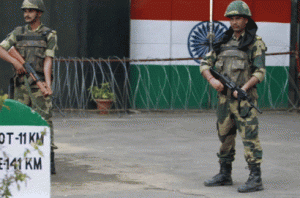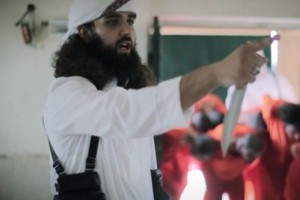It’s no secret that ISIS has a strong presence on social media and has for a while; it is, after all, one of the main ways it attracts new recruits across the globe.
Due to Islamic State’s activity on social media, new initiatives have been created in order to curtail these efforts. One such initiative is the group called CtrlSec, an anonymous cohort on Twitter that works to report accounts connected with ISIS.
Twitter, itself, an online platform meant to reach large audiences with the greatest ease, faces crippling limitations in its attempt to wipe out those accounts which ISIS commands. This is largely due to concerns regarding free speech and the fact that there exists no particular catch phrase or hashtag that ISIS uses, which could be identified by an algorithm.
CtrlSec aims to lessen these limitations by trying to flag as many Islamic-State-affiliated accounts as it possibly can. And it seems to be helping – as of June 2016 it claimed to have flagged 147,000 accounts, 133,361 of which were suspended.
The leader of CtrlSec, who goes by the alias Mikro, says he spends 15-19 hours per day overseeing CtrlSec’s 25 volunteer flaggers who flag accounts 24/7.
“I saw ISIS as a growing threat to today’s society and decided I had to at least try and do something about it,” said Mikro in a recent interview with Krithika Varagur for the Huffington Post. And thus, Mikro who is an unemployed web designer, decided to create CtrlSec to do what he could to help the situation.
CtrlSec operates by means of four linked Twitter accounts, which are used to send out scheduled Tweets several times an hour containing the names of ISIS-affiliated accounts; these names are then used by volunteers to flag the accounts en masse.
These accounts are typically found through existing ISIS-affiliated accounts as well as by obvious hastags like #IslamicState and the Arabic equivalents. There are no special shortcuts. Common sense and fluency in Arabic are the volunteers main tools.
Mikro also mentioned in the interview that Twitter is not interested in working with the group. In response to Mikro’s critiscism, a Twitter representative stated: “We condemn the use of Twitter to promote terrorism and the Twitter Rules make it clear that this type of behavior, or any violent threat, is not permitted on our service.” Adding however, that Twitter does not consult third-party lists like those compiled by CtrlSec, which they described as “wildly inaccurate.”
But while CtrlSec cannot count Twitter among its supporters, those who work in counter-terrorism and even former CIA General Petraeus have praised CtrlSec and groups like it for their work.
This proves that even regular citizens can help to combat strongly threatening forces like ISIS.
If you want to help Clarion Project in challenging radical Islam –please be in touch.
clarionproject.org












